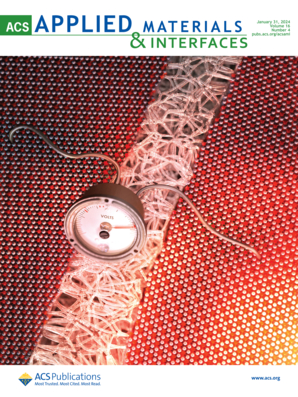解读影响力:探索顶级消费者研究期刊的新颖性效应
IF 8.3
2区 材料科学
Q1 MATERIALS SCIENCE, MULTIDISCIPLINARY
引用次数: 2
摘要
本研究通过考察影响学术、公众和实际影响的因素,研究了出现在消费者研究领域四大期刊--《消费者研究》、《消费者研究期刊》、《消费者研究杂志》和《消费者研究期刊》上的文章的影响。这从概念上区分了 "不协调新颖性"(因文章与其他现有文章之间的不协调而产生的新颖性)和 "重组新颖性"(基于从更多不同参考文献中汲取营养而产生的新颖性)。不协调新颖性分为两部分:(1) 主题不一致--文章主题与当时其他已有主题之间的不一致;(2) 文章不一致--文章与同一主要主题的其他已有文章之间的不一致。通过整合主题建模和词嵌入来测量这些结构,我们证明了新颖性类型对三种影响的不同影响。总体而言,我们的研究结果表明,话题和文章不一致性的影响超出了重组新颖性的影响。对于学术影响和公众影响,我们的结果表明,中等程度的主题不一致性影响最大,这表明研究人员应该研究新颖的主题。此外,较低和较高(相对于中等水平)的文章不一致性也会对学术引用产生积极影响,这表明研究人员要么从事计划性研究,要么为某一主题的现有研究添加新方法。本文章由计算机程序翻译,如有差异,请以英文原文为准。
Unraveling Impact: Exploring Effects of Novelty in Top Consumer Research Journals
This research studies the impact of articles appearing in the top four journals for consumer research—JCR, JMR, JM, and JCP—by examining factors that influence scholarly, public, and practical impact. This conceptually distinguishes between “incongruent novelty” (novelty arising from incongruity between an article and other existing articles) and “recombinant novelty” (novelty based on drawing from more disparate references). Incongruent novelty is decomposed into two components: (1) topic incongruity—incongruity between an article's topic and other existing topics at the time and (2) article incongruity—incongruity between an article and other existing articles on the same primary topic. By integrating topic modeling and word embedding to measure these constructs, we demonstrate varying impacts of types of novelty on three types of impact. Overall, our findings illustrate that topic and article incongruity have effects above and beyond recombinant novelty. For both scholarly and public impact, our results suggest that moderately high topic incongruity has the largest influence, suggesting that researchers should address novel topics. Additionally, scholarly citations are positively affected by lower and higher (vs. moderate) levels of article incongruity, suggesting that researchers either engage in programmatic research or add a new approach to the existing research on a topic.
求助全文
通过发布文献求助,成功后即可免费获取论文全文。
去求助
来源期刊

ACS Applied Materials & Interfaces
工程技术-材料科学:综合
CiteScore
16.00
自引率
6.30%
发文量
4978
审稿时长
1.8 months
期刊介绍:
ACS Applied Materials & Interfaces is a leading interdisciplinary journal that brings together chemists, engineers, physicists, and biologists to explore the development and utilization of newly-discovered materials and interfacial processes for specific applications. Our journal has experienced remarkable growth since its establishment in 2009, both in terms of the number of articles published and the impact of the research showcased. We are proud to foster a truly global community, with the majority of published articles originating from outside the United States, reflecting the rapid growth of applied research worldwide.
 求助内容:
求助内容: 应助结果提醒方式:
应助结果提醒方式:


